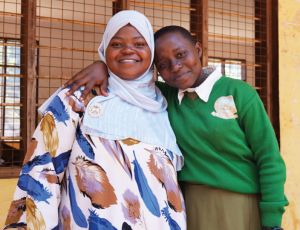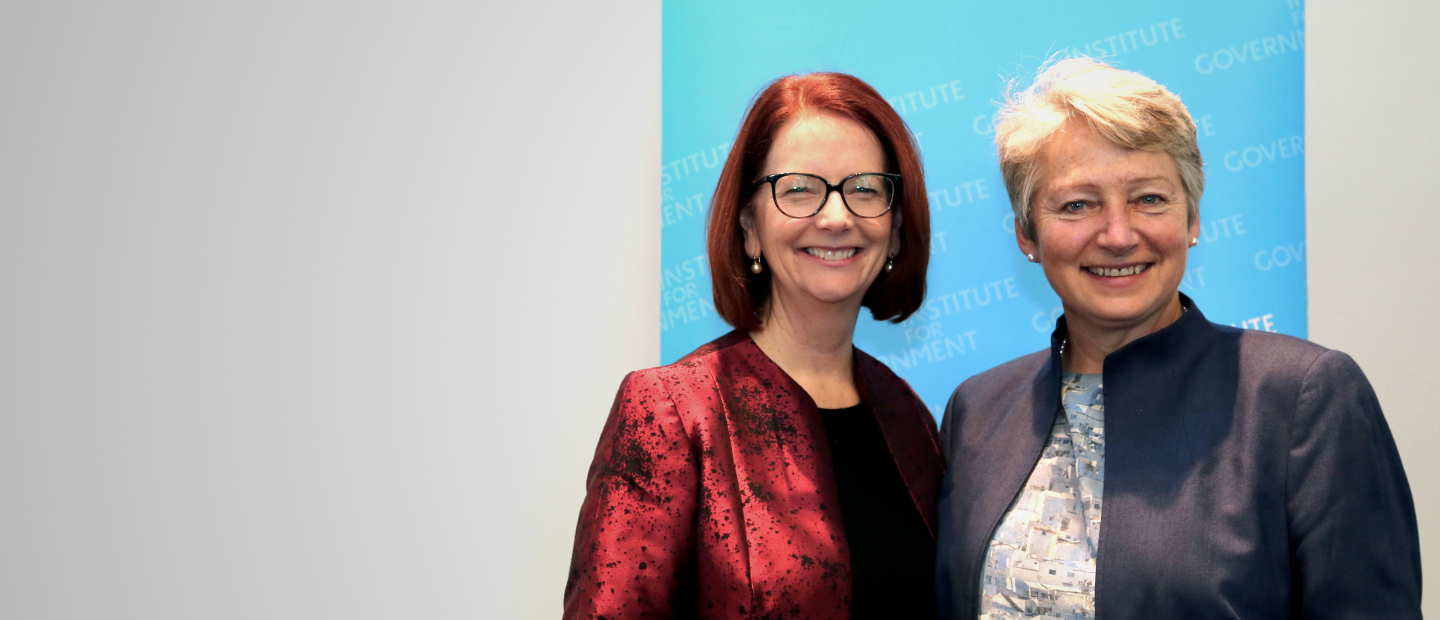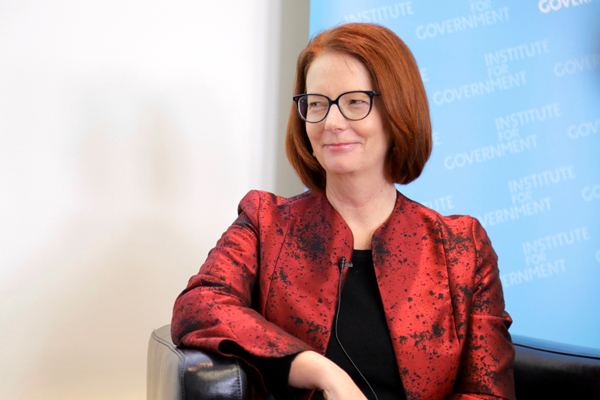
When she thrives, we all thrive
Together this giving season, we can make a difference that ripples outward to benefit everyone.


Julia Gillard addressed the challenges of running a modern democracy, her work promoting education for girls globally, and the sustainability of CAMFED’s model under the leadership of its alumnae.
I am absolutely persuaded that intervening to make a difference for women and girls is the single best investment we can make to change our world.
Julia Gillard
By 2030, there will be 1.6 billion school age children on the planet, and if current trends continue, 800 million of them will emerge from school without any secondary level skills.
“This is a recipe for disaster in all sorts of ways,” Julia Gillard explained. “The people who are going to get access last are girls. If trends don’t change, it won’t be until 2111 that we’ll see the first generation of sub-Saharan African girls who all go to primary school and lower secondary school…This is clearly too long to wait when we know that if you educate a girl she is much more likely to marry later; she can choose to have fewer children; children will be more likely to survive infancy, more likely to be vaccinated, more likely to go to school. She is less likely to get HIV/AIDS. She will be an empowered person in her community, able to earn income – so this changes not only her life and her family’s life but ultimately it changes whole communities and whole nations.”
Apart from her philosophical commitment to feminism and gender equality, Julia underlined, “I am absolutely persuaded that intervening to make a difference for women and girls is the single best investment we can make to change our world.”

The Hon Julia Gillard at Institute for Government. At the top of the page she is pictured with the Institute’s Board member, and CAMFED International Board Chair, Miranda Curtis.
The 27th Prime Minister of Australia (2010-2013), Julia Gillard now serves as Chair of the Global Partnership for Education and on the board of the Education Commission. She is a Distinguished Fellow with the Center for Universal Education at Brookings, and a Visiting Professor in the Policy Institute at King’s College London.
Julia, who earlier this year joined leaders of CAMFED’s CAMA alumnae network at strategic meetings designed to accelerate action for girls’ education and women’s empowerment, explained why she supports CAMFED, “This is a wonderful organization that makes a difference to the lives of girls in Africa and assists girls to stay in school, but then even more importantly to become an alumnae network, a movement that then works together individually and collectively to help the next generation of girls stay in school, so it’s an incredibly sustainable model, and one that’s got huge growth built into it.”
Watch a 10-minute excerpt of the conversation between Julia Gillard and Bronwen Maddox.
Elizabeth Hall $316
Lashonda Brazil-Turner $10.9
Laura Hillstrom $106
Jackson Fahnestock $50
Fuchsia Burton $209
Ana Parke $1000
Elyce Wigham $26.6
Anya Maziak $75
Erin Cizina $211
Kelly Watts $52.9
Eric Friedman $36
Nancy Baker $106
Barbara Mifkovic $250
Ina Horn $211
Jeffrey Masters $1000